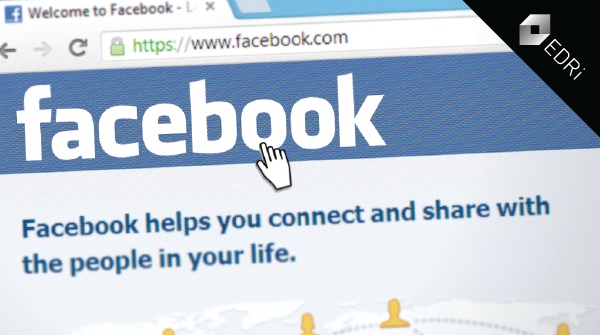Our dependency on Facebook – life-threatening?
What is your priority when a terrorist attack or a natural disaster takes place close to where your parents live or where your friend went on holidays? Obviously, you would immediately like to know how your loved ones are doing. You will call and text them until you get in touch.

Or, imagine that you happen to be close to an attack yourself. You have little or no information, and you see a person with weapons running down the road. You would urgently call the police, right? You try to call, but it isn’t possible to connect to the mobile network. Your apps are not working either. You can’t inform your loved ones, you can’t find information about what’s going on, and you can’t call the police. Right at the time that communication and knowledge are vital, you can’t actually do anything. Afterwards, it appears that the telecom providers switched off their mobile networks directly after the attack, obeying police orders. This measure was necessary for safety, because it was suspected that the perpetrators were using the mobile network.
This scenario isn’t that far-fetched. A few years ago the telephone network in the San Francisco underground was partially disconnected. The operator of the metro network wanted to disrupt the demonstration against police violence after such a protest disturbed the timetable. The intervention was considered justified based on the safety of passengers. As a consequence of the previous demonstrations, the platforms had become overcrowded with passengers that couldn’t continue their journeys. However, the intervention was harshly criticised as the deactivation of the phone network had endangered the passengers – because, how do you, for example, alert the emergency services in an emergency situation when nobody’s phone is working?
Immediately after the terrorist attacks in Sri Lanka in April 2019, the government did something similar: it made services like Facebook unavailable, to avoid that the flow of speculations spread through platforms like Facebook would worsen the chaos.
In Sri Lanka, Facebook is practically a synonym for “the internet” – it’s the main communication platform in the country where the practice of zero-rating flourishes. As a result of Facebook’s dominance, contents that are published on the platform can very quickly have an enormous reach. And, it is exactly the posts that capitalise fear, discontentment, and anger that have a huge potential to go viral, whether they are true or not. Facebook in itself doesn’t have an incentive to limit the impact of these posts. On the contrary: the most extreme messages are contributing to the addictive nature of the social network. The posts themselves aren’t a threat to people’s physical safety, but in the context of terrorist attacks, they can be lethal.
The distribution of false information is apparently such a huge problem that the Sri Lankan government has no other option than to disconnect the main communication platform in the country. It’s a decision with far-reaching consequences: people are being isolated from their main source of information and from the only communication tool to reach their family and friends. We find ourselves in a situation in which the harmful side-effects of such a platform are perceived to be bigger than the gigantic importance of open communication channels and provision of information – rather no communication than Facebook-communication.
This shows how dangerous it is when a society is so dependent on one online platform. This dependency also makes it easier for a government to gain control by denying access to that platform. The real challenge is to ensure a large diversity of news sources and means of communication. In the era of information, dependency on one dominant source of information can be life-threatening.
This article was first published at https://www.bitsoffreedom.nl/2019/05/29/life-threatening-our-dependency-on-facebook/

Life-threatening: Our dependency on Facebook (only in Dutch, 06.05.2019)
https://www.bitsoffreedom.nl/2019/05/06/levensgevaarlijk-onze-afhankelijkheid-van-facebook/
BART Pulls a Mubarak in San Francisco (12.08.2011)
https://www.eff.org/deeplinks/2011/08/bart-pulls-mubarak-san-francisco
Social media temporarily blocked (21.04.2019)
https://news.lk/news/sri-lanka/item/25077-social-media-temporarily-blocked
Sri Lanka blocks social media, fearing more violence (21.04.2019)
https://www.nytimes.com/2019/04/21/world/asia/sri-lanka-social-media.html
(Contribution by Rejo Zenger, EDRi member Bits of Freedom, the Netherlands; translation from Dutch to English by Bits of Freedom volunteers Winnie van Nunen and Amber Balhuizen)


